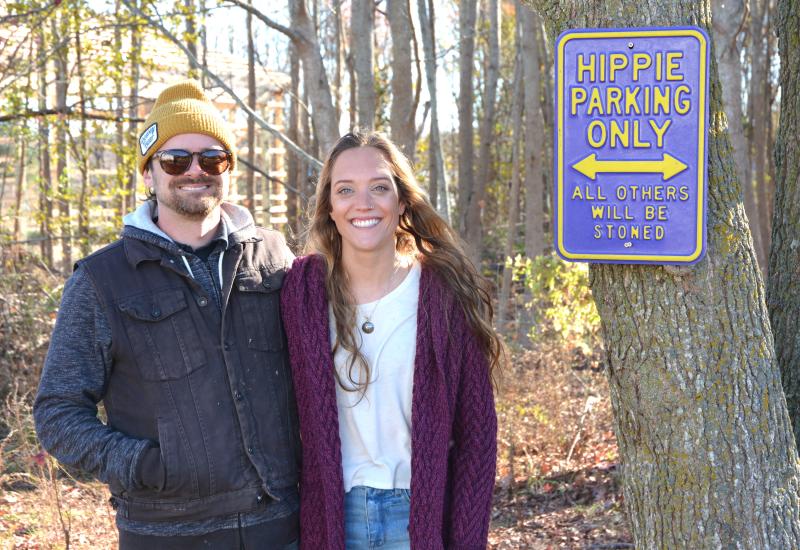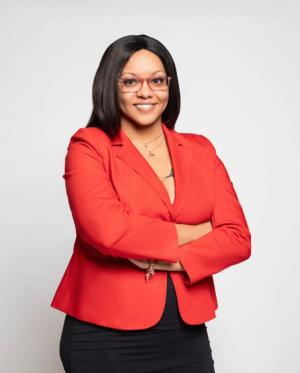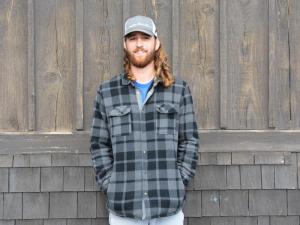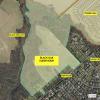Marijuana has been legal in Delaware since April 2023.
About six weeks ago, following a lengthy process creating rules and regulations for the new program, the Delaware Office of the Marijuana Commissioner held its licensing lottery. There were 727 applications for 21 individual licenses related to four different types of marijuana businesses – cultivation, manufacturing, social equity retail and lab testing.
Shortly after the lottery was held, the OMC released the names of the applicants that were picked. Soon after that, the office sent out a congratulatory letter to the winners that included ways to contact the local media if they were interested in reaching out. The OMC wouldn’t provide direct contact information for the winners.
These are a few of the winners who reached out to the Cape Gazette to tell their stories about why they want to get into the burgeoning industry, their journeys on how they got here, and questions and concerns they have as they navigate through a process that’s still being written as they move along.
The OMC did not conduct the lottery for the open retail category. Marijuana czar Robert Coupe said those applications are still being processed because of the large number submitted. That lottery is expected to take place sometime this month, but no date has been announced.
The homesteading couple
Kirsten and Andrew Kleinstuber won a microcultivation license. They are Sussex County natives who went to the University of Delaware and currently manage a local restaurant.
The pair have more than 10 acres of land outside Dagsboro. Andrew described themselves as hobby farmers up to this point, but they do have sheep, goats and pigs. Their intention to have an indoor growing facility focused on a high-quality, sustainable product, he said.
“It’s a real grassroots operation,” he said.
Kirsten said a lot of details are still being figured out. The good news is, added Andrew, the state is figuring things out and able to help provide answers.
The day of the lottery, Kirsten said they were watching in nervous anticipation. When their number was called, they did a double check, she said.
“It was really exciting,” she said.
Andrew’s reaction was a little more sobering because they weren’t sure how much work to put into the application in case they didn’t win. “Now what?” he said.
Immediately, the Kleinstubers said they’re now looking for partners and navigating through the state’s process.
“We’re just normal people,” said Kirsten. “The whole thing is objectively interesting.”
The female minority entrepreneur
Tracee Southerland won the lottery twice for a social equity lab testing facility, one in New Castle County and one in Sussex County.
Southerland doesn’t have a background in laboratory testing. Instead, she describes herself as an entrepreneur – she worked as a property manager for a decade before starting her own trucking company.
“It’s on to something else,” she said. “I was doing a lot of research and once I realized the options, I thought it all sounded very exciting.”
She said she filled out the application for the laboratory testing for a couple of reasons – she thought there would be less competition and the equipment could be used for other types of testing if needed. The gamble paid off because there weren’t any other applicants.
“I’m still shocked,” she said.
Similar to other lottery winners, Southerland said she’s in the process of finding partners to work with. She said she likes her chances because of the exclusivity.
“In Delaware, you can’t do anything with your product without it going to a lab first,” she said.
Southerland said she’s also an advocate for the state’s cannabis industry as a whole. She was recently hired by the Delaware Cannabis Industry Association as its first employee. The association’s goal is to educate, help businesses through the process and represent the industry when needed.
“As the industry grows in Delaware, it’s important it has a unified voice in Dover,” she said.
The local guy who was going to be a teacher
Patrick Galloway was born and raised in Sussex County. He said he grew up “in the sticks” between Georgetown and Long Neck. He won a microcultivation license.
Galloway said he went to the University of Delaware and had thoughts of becoming an agricultural teacher, but learned during student teaching that “teaching was not for me.”
He’s worked as the manager of a farmers market in Newark and in the IT department of a local restaurant and hospitality company.
Galloway said he’s explored going out west to work in the cannabis industry, but he had a child and that’s kept him close.
He said he’s been self-medicating with cannabis for years because of a motorcycle accident that left him with herniated discs. His goal is to produce a boutique-style product.
“I’ve seen what the plant can do for pain management, and I want to be able to offer that for others,” said Galloway.
Similar to others, Galloway said the lottery process was generally easy to navigate, but nerve-wracking nevertheless. When he saw his number get called, there were fist pumps, he said.
It’s not lost on Galloway that he’s among a select group getting to make history in a new industry. It’s got to be done the right way, he said.
The veteran looking to help veterans
Billy Metts won a microcultivation license. He’s an Army veteran. He was an interrogator who can speak six languages. However, fairly recently, he was homeless and living with post-traumatic stress disorder.
That changed in May, after Metts was involved in a serious car accident that required numerous surgeries; he’s still walking with a cane. He said cannabis helped him deal with the pain during recovery.
Sitting in the dining hall of American Legion Post 28 in Long Neck, Metts said he had a lot of time to think about the next phase of his life while in the hospital. He landed on helping other veterans by teaching them how to grow cannabis, with an opportunity to run their own farm at some point in the future.
People who have been in the military thrive when they’re part of a unit, with a company mission, said Metts. There are highly motivated veterans out there, he said.
Metts said he doesn’t have a background in cultivation, but he’s partnered with those who do. He wants to provide the unit of veterans who work for him a livable wage – $30 an hour – so that they’re well positioned to succeed after learning how to grow.
Looking forward, Metts said once the cultivation business is established in Delaware, he has visions of expanding to cultivation all over the Delmarva Peninsula.
“I want to grow the best weed in the world,” said Metts. “There’s nowhere to go but up.”
The cannabis consultant from Chicago
Technically, Michael Mayes wasn’t a lottery winner. However, within days of the lottery being held, his company Quantum 9 had cultivation licenses in all three counties being advertised as for sale. He’s a winner from a broader perspective.
Mayes is the CEO of Quantum 9, a Chicago-based cannabis consultant that’s been around for more than a decade. They offer opportunities for individuals to get involved in the cannabis industry all over the world.
The state doesn’t allow the sale of conditional licenses, which is the phase that all lottery winners are currently in. He said he’s not allowed to disclose the lottery winners that he’s working with because he’s bound by nondisclosure agreements.
What Mayes did offer was that there’s been a lot more interest in Delaware than he previously thought there would be. The state is small, which could be less desirable, but the state government has more control in limiting the number of licenses, so they’re more coveted, he said.














































